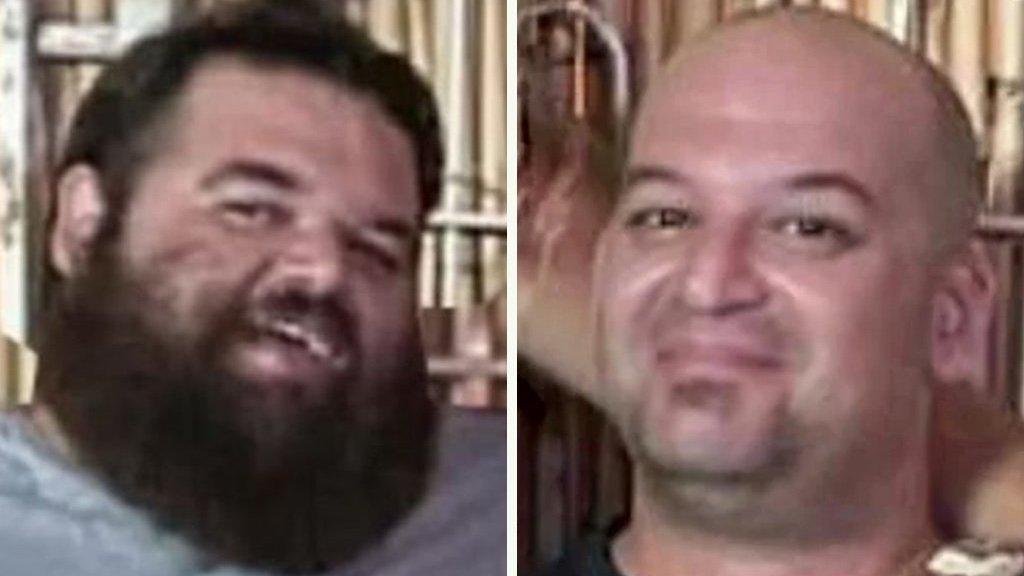Pro-Palestinian protests take place in London, Birmingham, Cardiff, Belfast and Salford
- Published
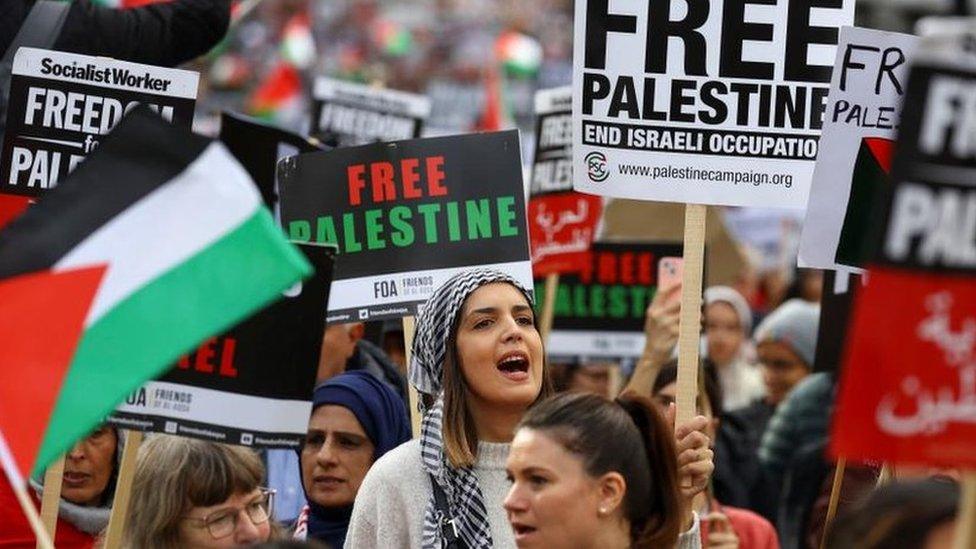
Thousands of people have taken part in a pro-Palestinian protest in London for the second consecutive weekend.
The Met Police estimated up to 100,000 people had joined the march, which ended in a rally near Downing Street.
More than 1,000 officers were involved in policing the demonstration, and 10 people were arrested.
Smaller demonstrations also took place on Saturday in Birmingham, Belfast, Cardiff and Salford.
After Saturday's march in London, the Metropolitan Police said arrests were linked to possession of fireworks, public order and assaulting an emergency service worker.
The Met said on Sunday it was taking no further action after footage appeared online of a man at a smaller rally close to the main march chanting "jihad, jihad". A statement from the force said it "had not identified any offences arising from the specific clip".
It also said no further action would be taken after it reviewed photographs of protesters holding banners referring to "Muslim armies".
The government intends to hold talks with the Met over the decisions after Immigration Minister Robert Jenrick said "a lot of people" would find the Met's analysis "surprising".
"That's something that we intend to raise with them and to discuss this incident with them," he said.
Protesters on the London march were heard chanting a slogan that some use to call for Palestinian control of all land between the Jordan River and the Mediterranean Sea, including Israel.
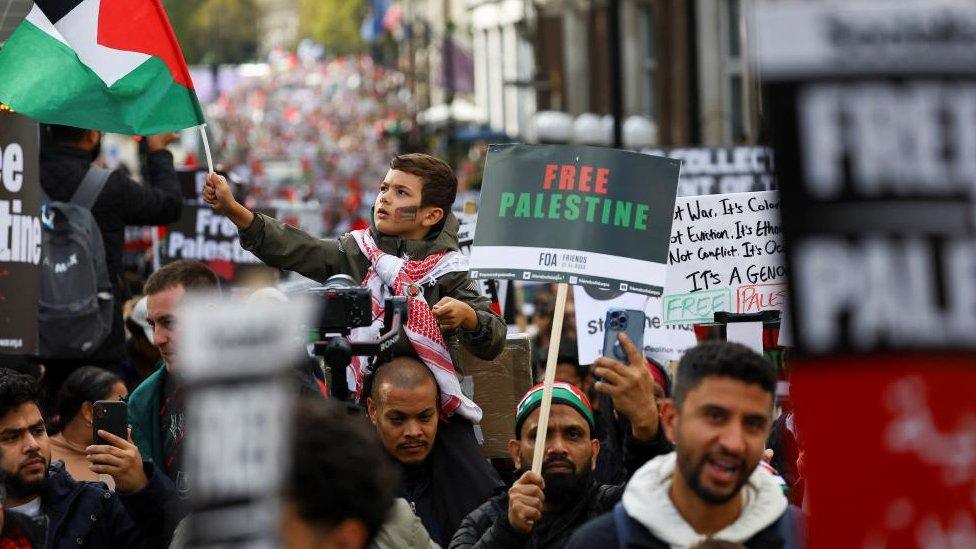
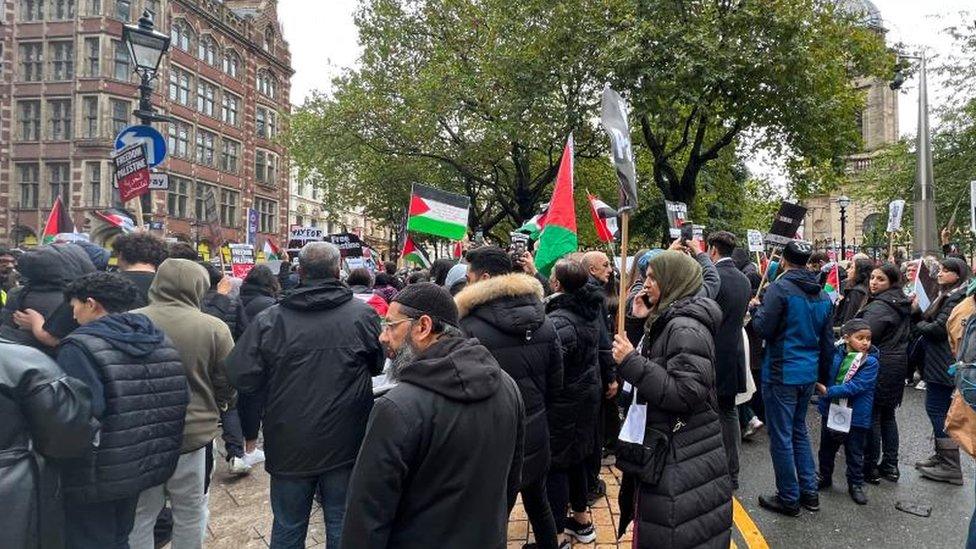
A protest also took place in Birmingham on Saturday
Home Secretary Suella Braverman has said the slogan "from the river to the sea, Palestine will be free" calls for the destruction of Israel.
She has previously urged police chief constables to "consider... whether its use in certain contexts may amount to a racially aggravated" offence, although the Met has said the chant alone does not constitute a criminal act.
In Belfast, protesters held a demonstration outside BBC Northern Ireland headquarters.
People Before Profit assembly member Gerry Carroll said they aimed to "challenge" how the BBC had covered the conflict in the Middle East.
A BBC spokesperson said the corporation had provided audiences around the world with coverage and first-hand testimony "of the atrocities committed by Hamas, and the suffering in Gaza".
"We have made clear the devastating human cost to civilians living in Israel and Gaza, and the unprecedented nature of what has happened," the spokesperson added.
The demonstration in Salford was held outside the Media City complex, where the BBC has its offices - with protesters there also criticising the corporation for its reporting of the conflict.
In Cardiff, around 1,000 protesters waving Palestinian flags and supportive placards took part in a march towards the Welsh Parliament.
The demonstration was organised by several groups who are calling on the British and Welsh governments to insist on an immediate ceasefire in Gaza and for "full humanitarian aid" to be sent in.
Maggie Morgan, from the Palestinian Solidarity Campaign Cardiff, said: "We are taking to the streets as a show of solidarity to the people of Gaza, to show our support for them, but also to make the government listen, and say 'not in our name, we're not having this.'"
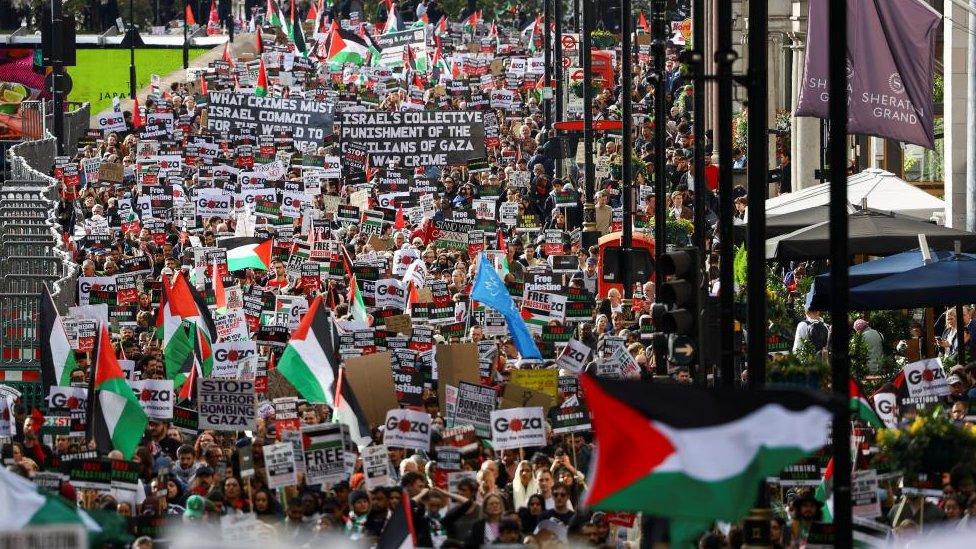
The central London march attracted up to 100,000 people, police said
All crossings between Israel and Gaza have been closed since the Hamas attack on Israel. The Rafah crossing, which is controlled by Egypt, has also been largely closed, but an aid convoy was permitted to enter on Saturday.
Hamas - a proscribed terrorist organisation in the UK, US and European Union - launched a deadly attack against Israeli civilians on 7 October.
More than 1,400 people were killed when gunmen breached security at the Gaza barrier and raided communities in southern Israel, with survivors reporting widespread atrocities including torture and bodies being burnt. More than 200 people were taken to Gaza as hostages.
Officials in Hamas-controlled Gaza say more than 4,600 people have been killed over the last two weeks after Israel began retaliatory air strikes.
On Saturday, a spokesperson for the Israeli military said it would "deepen" and "increase" the strikes, in order to allow Israel to "minimise the risks to our forces in the next stages of the war".
The UN says strikes on Gaza, a densely-populated enclave bounded by the Mediterranean Sea on one side and fenced off from Israel and Egypt, have displaced around 1.4 million people, with more than half a million staying in shelters.
About 200,000 Israelis have been displaced, according to the Israeli government.
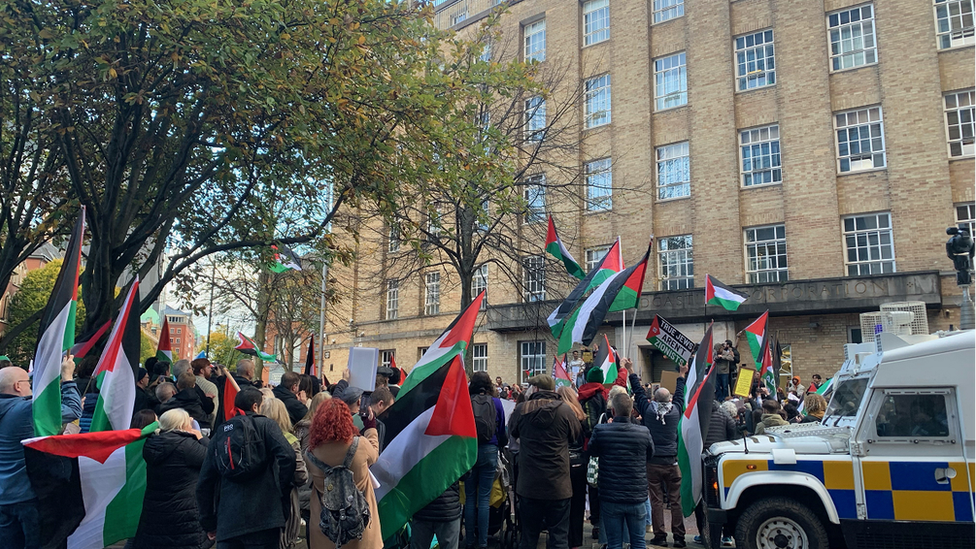
Demonstrators gathered outside the BBC's headquarters in Belfast on Saturday
Prime Minister Rishi Sunak said there should be increased humanitarian access to Gaza.
Writing in the Sunday Telegraph, Mr Sunak - who this week visited Israel, Saudi Arabia and Egypt - said the UK supported Israel's right to defend itself against a "murderous enemy" but the area faced an "acute humanitarian crisis".
He said people in Gaza were suffering and he wanted to see a "stream of trucks" passing through the Rafah crossing with Egypt, and the restoration of water supplies to Gaza "where physically possible".
Earlier on Saturday, UK Foreign Secretary James Cleverly warned the conflict is threatening to engulf the Middle East.
Mr Cleverly has visited Israel, Turkey and Qatar as part of diplomatic efforts around the worsening crisis in Israel and the Occupied Territories.
Speaking at the Cairo Peace Summit, he said: "This has been an issue which has long stimulated passions and we are now all seeing on social media and in our communities how divisive and polarising the current situation has become.
"So we have a duty to work together to prevent instability from engulfing the region and claiming yet more lives."

More on Israel-Gaza war
Follow live: Latest updates
Explained: What evidence tell us about Al-Ahli hospital blast
History behind the story: The Israel-Palestinian conflict
West Bank: Palestinians under attack as Israeli settler violence surges
Related topics
- Published21 October 2023
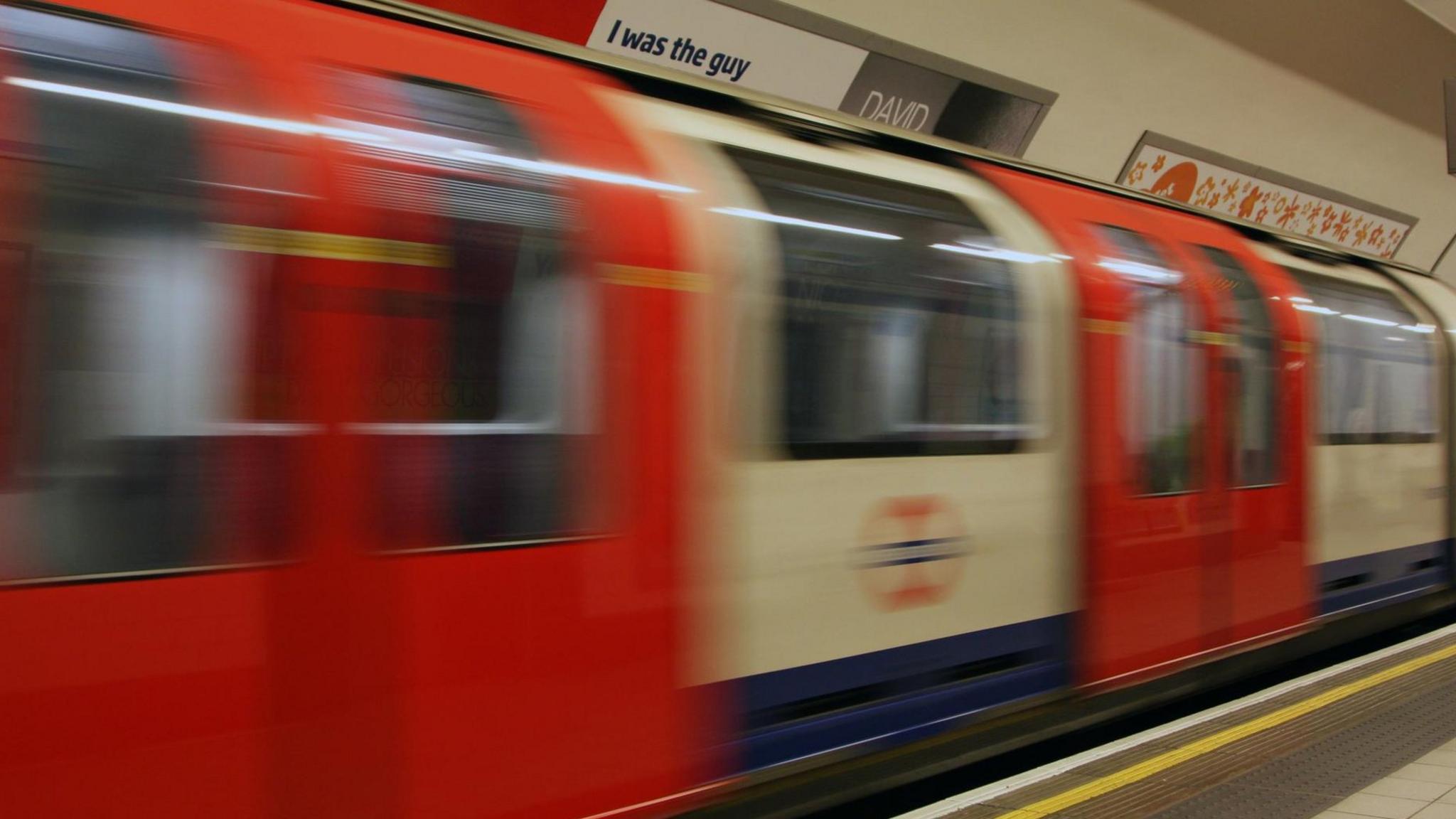
- Published20 October 2023
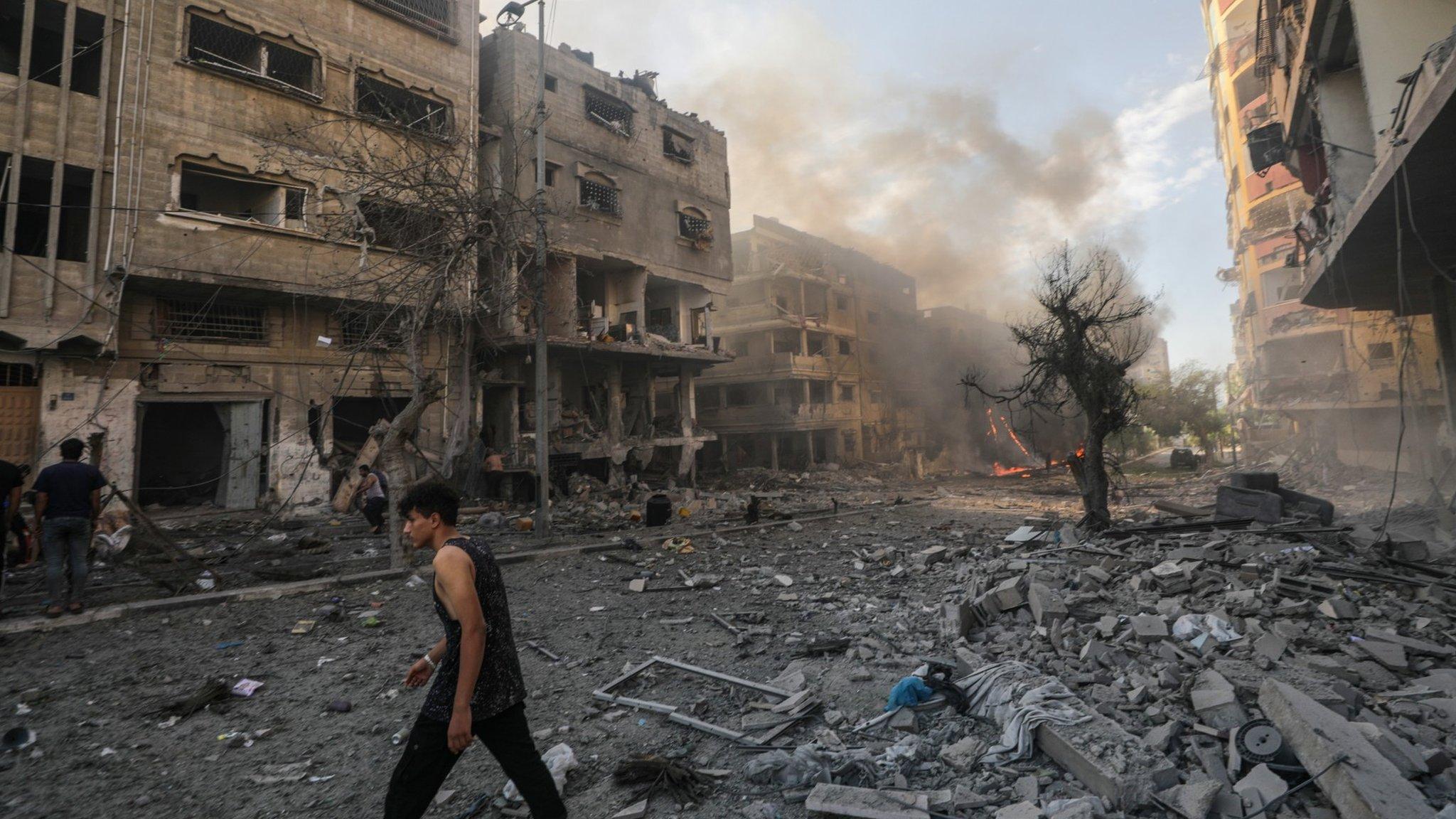
- Published20 October 2023
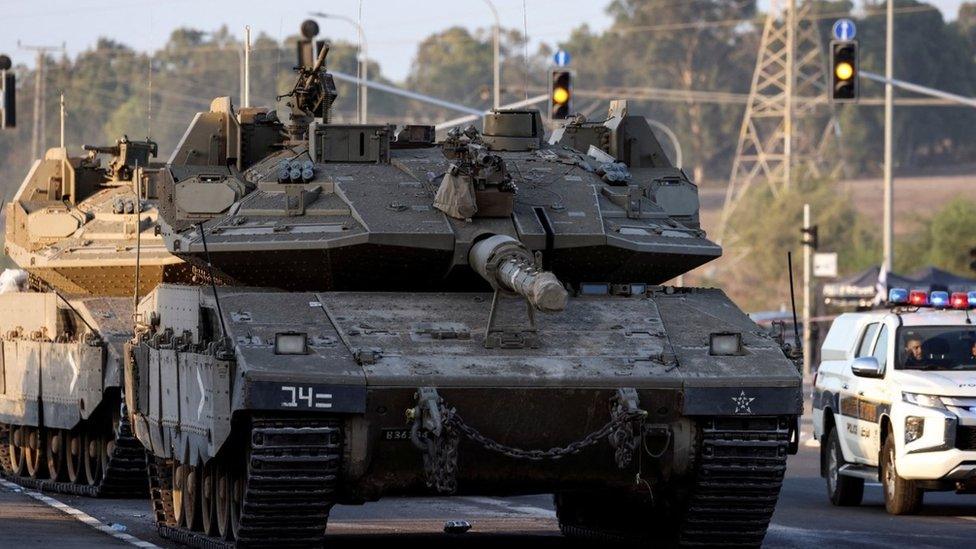
- Published27 February
